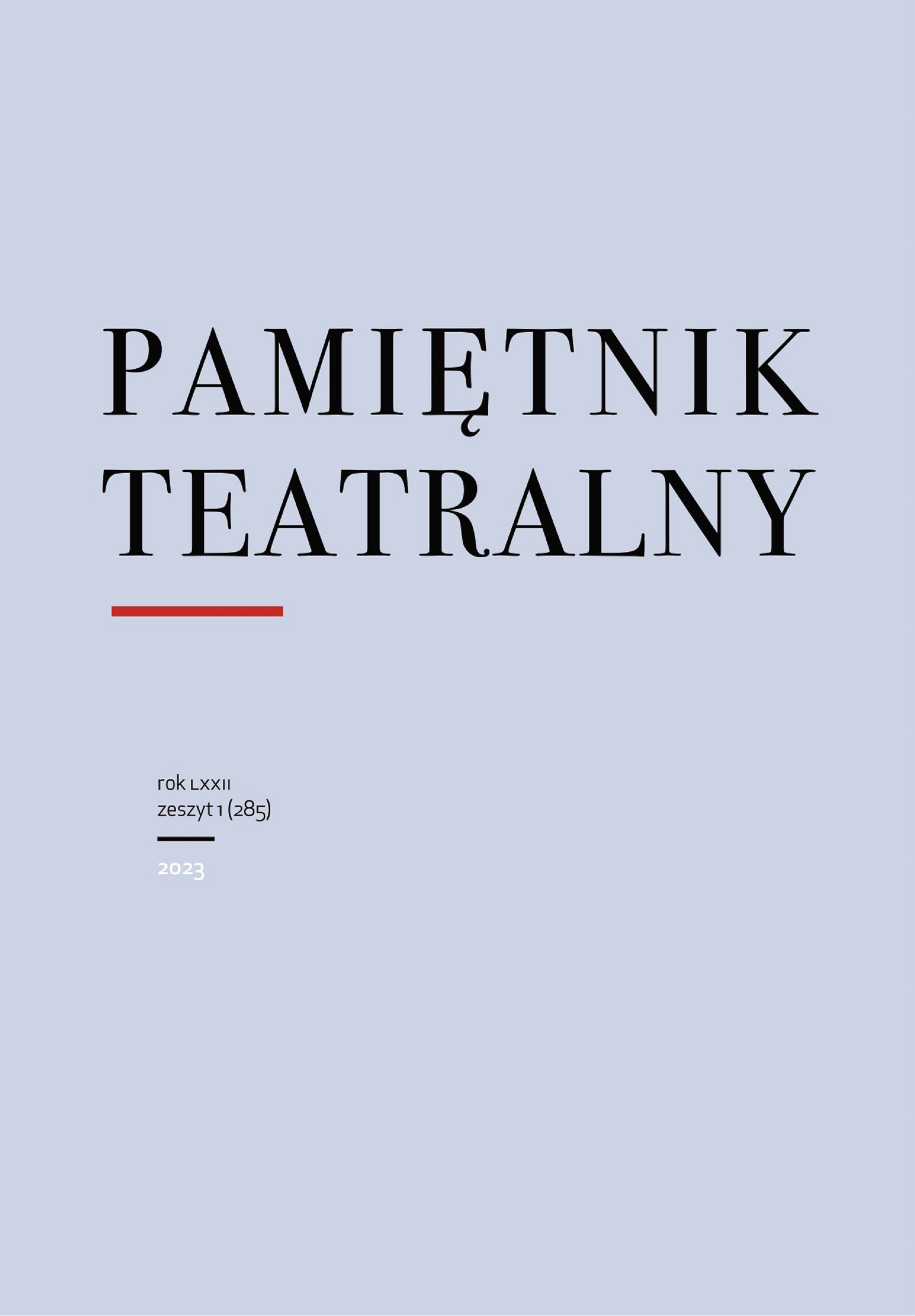Polityka i dyscyplinowanie
widowisk
Opera w rewolucyjnej Francji w latach 1789–1794
Politics and the Disciplining of Spectacles: The Opera in Revolutionary France 1789– 1794
Author(s): Marek MosakowskiSubject(s): Theatre, Dance, Performing Arts, 18th Century, History of Art
Published by: Instytut Sztuki Polskiej Akademii Nauk
Keywords: French Revolution; Jacobin dictatorship; French revolutionary theater and opera; revolutionary censorship; Étienne-Nicolas Méhul; François-Joseph Gossec;
Summary/Abstract: This article discusses the ways in which performances were disciplined in revolu- tionary France between 1789 and 1794. It presents the socio-political contexts of two legal acts regulating the production and staging of plays: the relatively liberal Le Chapelier Law of 13 January 1791 and the repressive Decree of the National Convention of 2 August 1793, which turned French theater and opera into a pro- paganda platform of the Jacobin regime, imposing ideology and topics on the artists. The artistic practice of the time is illustrated by two operas: Étienne Nicolas Méhul’s Hadrian, Emperor of Rome and François-Joseph Gossec’s The Triumph of the Republic. The former was suspended one day before the premiere, scheduled for 13 March 1792, as the Paris Commune deemed it overtly monarchical and politically incorrect in a France where the foundations of the Bourbon monarchy were already shaking, and the extremely polarised public sentiment was about to pave the way towards a republic. The latter was composed shortly after the fall of the monarchy and staged in early 1793. The Triumph of the Republic set new aesthetic standards for French republican and patriotic opera. Gossec’s work is discussed as an example of the principles of the new cultural politics of the Jacobin dictatorship, based on unprecedented repression and censorship.
Journal: Pamiętnik Teatralny
- Issue Year: 72/2023
- Issue No: 1
- Page Range: 161-179
- Page Count: 19
- Language: Polish

